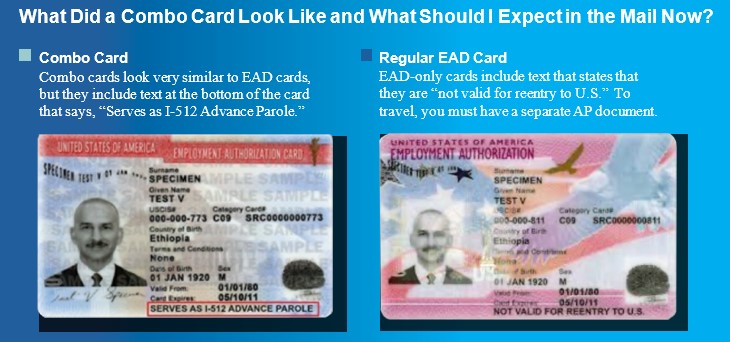Are You a Green Card Applicant with a Pending I-485 Adjustment of Status Application?
If so, you may be expecting to receive an employment authorization document (EAD) and advance parole (AP) combo card. However, USCIS recently began issuing the two documents separately.
What Is a Combo Card?
In 2011, USCIS announced that they would begin issuing employment and travel authorization on a single “combo” card for those green card applicants already living lawfully in the United States and filing an adjustment of status (AOS) application. By combining the documents, USCIS enabled applicants to carry a single document that was more durable and secure than the previous AP document.
Why did USCIS Stop Issuing Combo Cards?
USCIS has stopped issuing combo cards in an effort to reduce growing EAD backlogs that have created employment interruptions for applicants. Because the two documents now will be sent to you separately, you may receive your EAD card before your AP document.
It is important to understand that the EAD card alone will not permit you to travel and re-enter the U.S. You must carry your separate AP document issued by USCIS to travel.
Disclaimer
The information on this website is for general information purposes only and does not constitute solicitation or provision of legal advice. Viewing information on this website and/or contacting Naya Law Group, PC does not establish an attorney-client relationship. This blog should not be used as a substitute for obtaining legal advice for any individual case or situation from an attorney licensed or authorized to practice in your jurisdiction.



